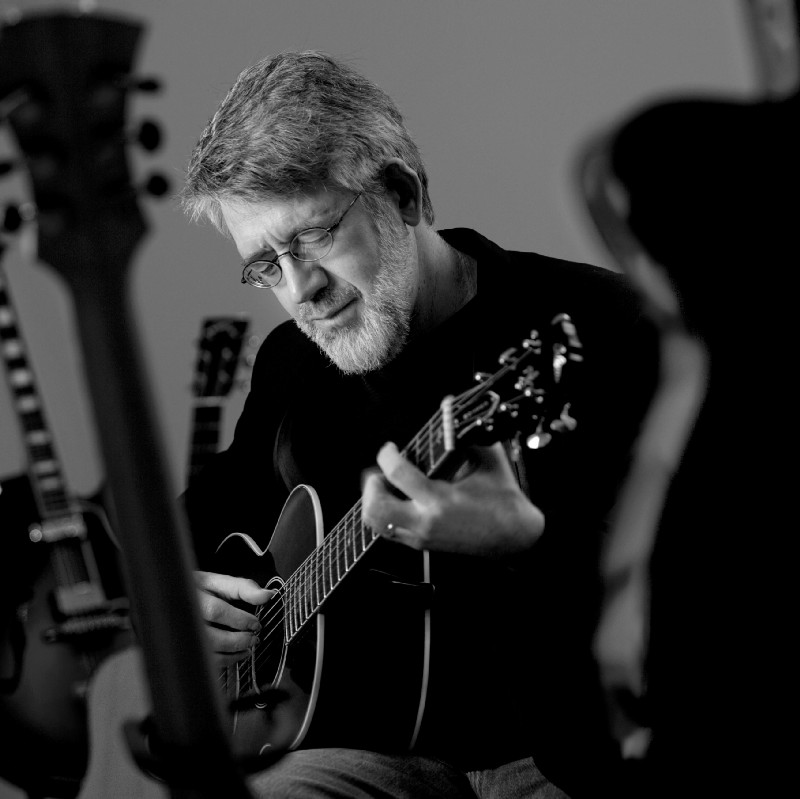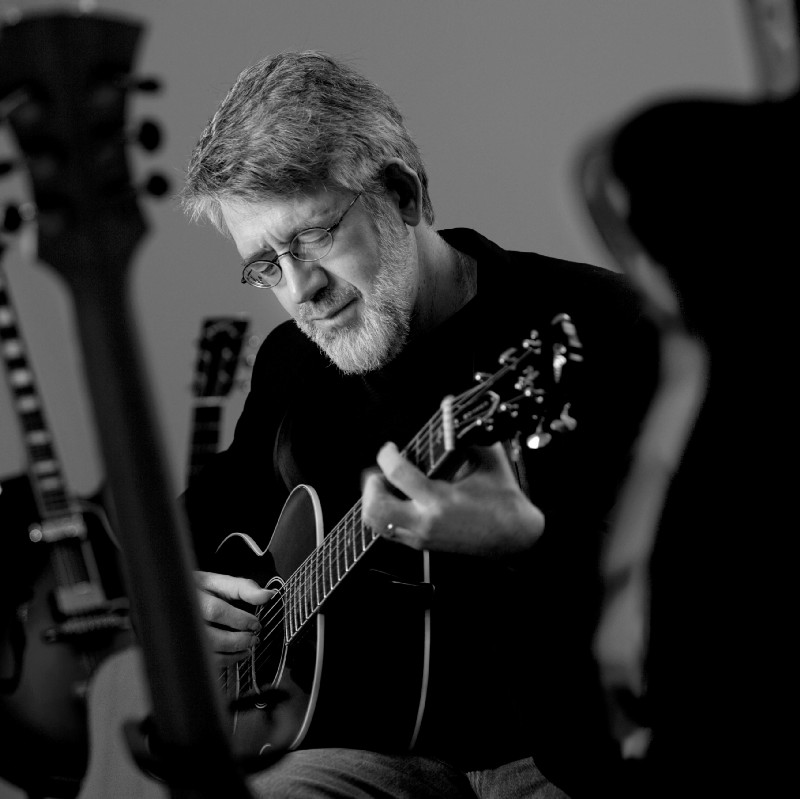Interview with Don Latarski — A Renowned Fingerstyle Guitarist and an Expert Author
- 6 min read
- Jul 26, 2018

The best strategy that helps any successful person involves doing what one loves most — in other words, ‘doing what moves one’s soul.’ Once somebody puts one’s soul into what one does, there is hardly any chance that he/she won’t find an audience; a niche that welcomes the creativity and is willing to spend/invest their time and money.

A musician has to reinvent in every song and every creation — the audience is always looking for something new that touches their soul and also sounds cool. It is very challenging but equally rewarding.
We talked to Don Latarski, a fingerstyle guitarist, who is also a prolific writer on the subject and an instructor at the University of Oregon. Through an email interview, we talked to him about his style of music, the audience, and also how to remain relevant in the modern times of continuous evolvement of the music industry.
Q1. You have donned multiple hats as a musician, a writer, and as a teacher. What gave you maximum satisfaction?
Each of these areas provided (and still provides) a pathway to a deeper understanding of music. I’m fascinated by the idea of “levels of knowing.” As a performing musician, you have to have the physical means to realize the emotions you are trying to communicate. This means lots of practice and getting out in front of an audience.
There are really two types of writing that I’ve done: composing and guitar instruction books. With the books, I had to work to organize my thoughts into easily understood concepts to talk about a subject that is difficult to actually write about. In some ways, it is like writing about maths. This process is very different from performing, but still deepens one’s understanding of music.
In composing, I have always used the approach of discovery and experimentation. More recently I’m thinking about sonic possibilities that the guitar is capable of, rather than from a performance perspective. This has been extremely liberating since I don’t really worry about performing the compositions. If I can imagine a sound, I’m free to try to create it. This may mean attaching a brush to the end of a drill motor and “strumming” the strings or hitting the strings with different objects. Or putting the guitar into the wind and tuning it to a sympathetic harmony.
Composing and performing are the most satisfying musical experiences. There is a magical place that the live music takes me (and hopefully the audience) to and my bandmates understand this place well and how to get there quickly. Composing and performing have taught me more than anything else about how music works.
Q2. Tell us about the uniqueness and demand of fingerstyle guitar playing in the music industry.
There are many extremely competent fingerstyle guitarists on the scene today spanning all genres of music. This approach gives the guitarist the ability to create a wider range of tones and to play a bit more like a keyboardist, albeit in a simpler way. I don’t like having a pick come between me and the string. I want to feel it and I want to be able to have control over how each note is played.
Q3. As an artist, do you feel a musician should stick to one genre or classification of music?
I have never been able to stick to one genre of music. Many other artists are comfortable with one style. I have a personality that seeks variation both harmonically, rhythmically, and melodically. When I look back at the variety of music I’ve written and recorded there is a huge range. I expect I’ll continue to evolve as an artist and that may alienate some listeners, but it is how I have to live my musical life.
Q4. Over the years, how do you see the music industry has changed in terms of marketing strategies and making a living as a musician?
The industry has changed radically from when I first began releasing LP’s. It was much simpler then. An artist now has to be able to write, produce, perform, photograph, make videos, work all the various social media outlets, book tours, and much more. It is amazing to me that any artist can make a living. It is still a mystery to me, but I’m learning more all the time and do study different ways of moving forward.
The most daunting aspect of being a musician in this age is just how many hours you have to sit in front of a screen. Every minute you spend doing that takes away from developing your art, but it has to be done.
Q5. What can the new generation of musicians learn from the experienced ones in terms of surviving in the industry as independent artists?
Perhaps the greatest lesson is to just show up and be ready to deliver your best work. You also have to be able to connect with people through the music. In other words, why would anyone want to listen to you? You have to give people a compelling reason. An emerging artist must have something unique to distinguish themselves from everyone else. The sooner they can identify this the better chance they will have to create a niche for themselves in the marketplace.
Q6. Any message for our readers?
If you are an artist you must identify what it is you do (or want to do) and who it is you are trying to reach. If you want to be a film composer, then study that genre thoroughly and connect with folks who need original music. Don’t worry about the money, just get to the task of building a library of music. Don’t wait for an opportunity to come along. You have to first prove that you can do the job. If you want to be a singer-songwriter, study those who’ve been successful and ask yourself WHY? Success is difficult to find since everyone calls themselves a “producer” and the digital age does make it pretty easy to write and record at a high level.
Since the music business has become so complicated it is possible to be a person who just helps other artists realize their dreams by knowing how to make and edit photos, audio, video, website creation, and the like. Whatever makes you feel the best, pursue it with the goal that you’re going to be successful.
By Patrick Hill on July 26, 2018.



